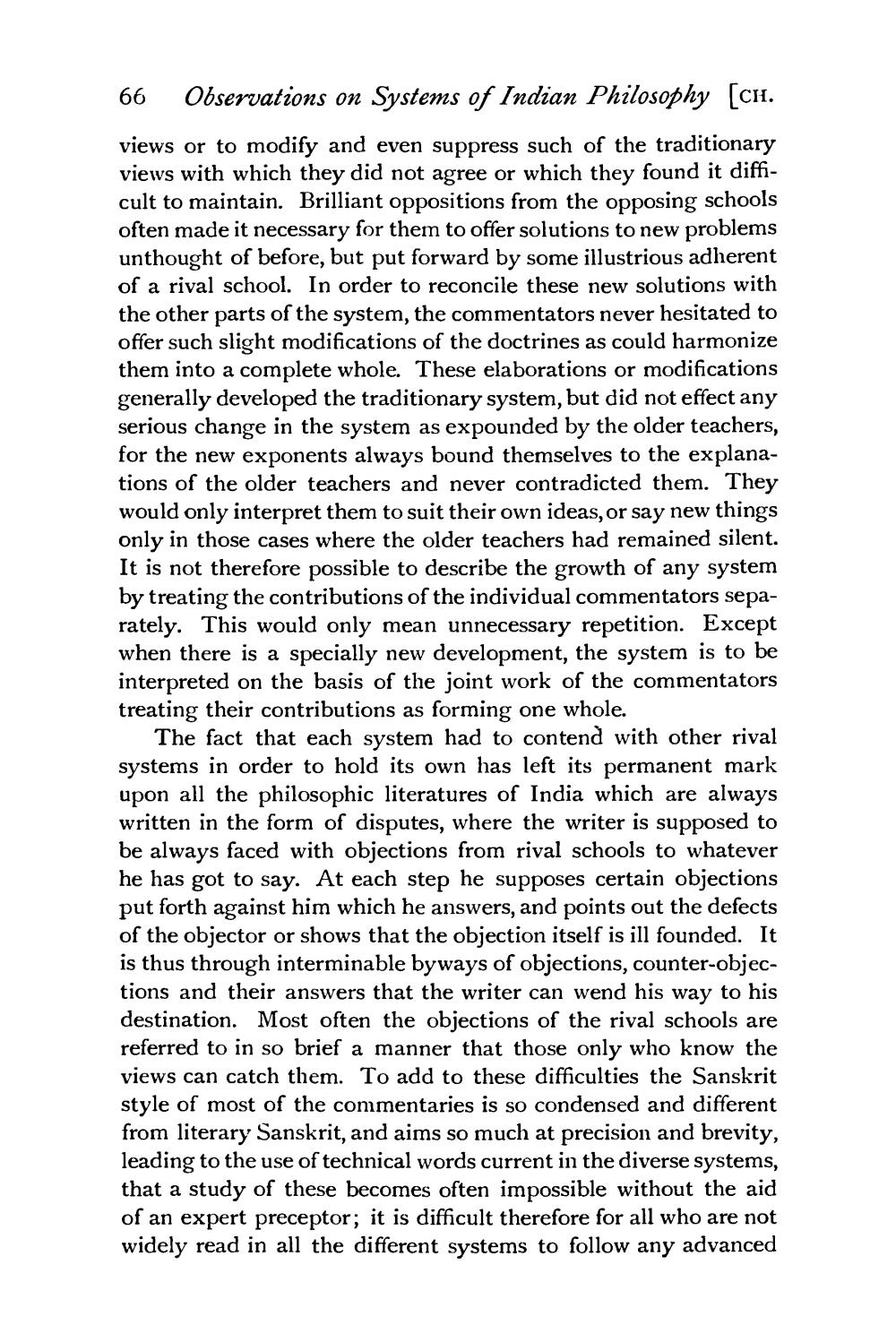________________
66
Observations on Systems of Indian Philosophy [CH.
views or to modify and even suppress such of the traditionary views with which they did not agree or which they found it difficult to maintain. Brilliant oppositions from the opposing schools often made it necessary for them to offer solutions to new problems unthought of before, but put forward by some illustrious adherent of a rival school. In order to reconcile these new solutions with the other parts of the system, the commentators never hesitated to offer such slight modifications of the doctrines as could harmonize them into a complete whole. These elaborations or modifications generally developed the traditionary system, but did not effect any serious change in the system as expounded by the older teachers, for the new exponents always bound themselves to the explanations of the older teachers and never contradicted them. They would only interpret them to suit their own ideas, or say new things only in those cases where the older teachers had remained silent. It is not therefore possible to describe the growth of any system by treating the contributions of the individual commentators separately. This would only mean unnecessary repetition. Except when there is a specially new development, the system is to be interpreted on the basis of the joint work of the commentators treating their contributions as forming one whole.
The fact that each system had to contend with other rival systems in order to hold its own has left its permanent mark upon all the philosophic literatures of India which are always written in the form of disputes, where the writer is supposed to be always faced with objections from rival schools to whatever he has got to say. At each step he supposes certain objections put forth against him which he answers, and points out the defects of the objector or shows that the objection itself is ill founded. It is thus through interminable byways of objections, counter-objections and their answers that the writer can wend his way to his destination. Most often the objections of the rival schools are referred to in so brief a manner that those only who know the views can catch them. To add to these difficulties the Sanskrit style of most of the commentaries is so condensed and different from literary Sanskrit, and aims so much at precision and brevity, leading to the use of technical words current in the diverse systems, that a study of these becomes often impossible without the aid of an expert preceptor; it is difficult therefore for all who are not widely read in all the different systems to follow any advanced




